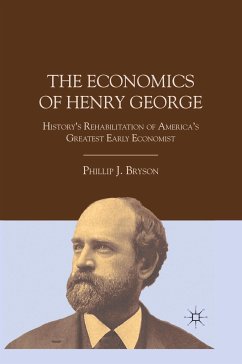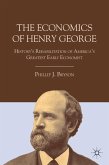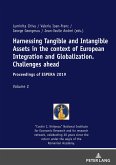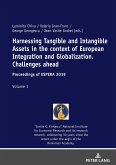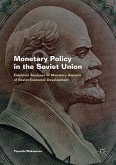Henry George the greatest, most famous and most rejected of early American economists who trained himself in classical economics and developed a theory of a 'single tax'. There is much literature on many specific facets and aspects of George's work, but we lack a book which provides an overview of George's economics... until now!
"Mr. Bryson's sympathetic, yet critical, account of Henry George's economic ideas provides a useful understanding of them, both in relation to his 19th century contemporaries and to later neoclassical economics. Although he sometimes compares George unfavorably to later developments in the field of economics, Bryson also acknowledges that "it is not apparent that [the later achievements] are vastly superior to the kinds of changes that George was offering." Bryson shows how George's ideas can be "rehabilitated" for the 21st century and make important contributions to ongoing debates in economic theory and policy." - Cliff Cobb, Former President, Robert Schalkenbach Foundation
"This volume does a wonderful job explaining Henry George's ideas. But for the reader interested in those ideas, it does much more. Professor Bryson explains how George, an academic outsider, developed his ideas, and then places them in the context of the economic ideas of George's time. Anyone interested in George's ideas will certainly come away enlightened after reading what Professor Bryson has to say." - Randall G. Holcombe, DeVoe Moore Professor of Economics, Florida State University
"Phillip Bryson has written an account, neither apologia or hagiography, that proponents of the political and economic philosophy of Henry George will agree with and learn from. It is at the same time detached from sweeping claims and accessible to both a professional economic audience and the educated layperson. His placement of George in the ongoing and broader discourse of socio-economic thought should be applauded, and he has done a public service by tracing George's revived standing in the world's economic and tax policy discourse. George, whom John Dewey ranked among the top ten thinkers of all time, deserves far more note than he has been given in recent years." - H.William Batt, Robert Schalkenbach Foundation
"The parts on central and eastern Europe are particularly new and valuable Few western scholars, and certainly not this one, have been aware of how much influence George had east of the Elbe. Bryson, after a career focusing on that region, opens our eyes to a new world of Georgist history, and new prospects for renewed Georgist reform." - Mason Gaffney, Professor of Economics, University of California-Riverside
"Phillip J. Bryson has done an superlative job of assessing the significance of Henry George, both in the context ofGeorge's day and in the context of our own. Drawing on his comprehensive knowledge of the history of economic thought and current economic issues,Professor Bryson shows howGeorge has made, and continues to make, unique and valuable contributions to scholarly economic analysis,viable public policy,and the quest for a more just society." - Mark A. Sullivan, Administrative Director, Robert Schalkenbach Foundation
"This volume does a wonderful job explaining Henry George's ideas. But for the reader interested in those ideas, it does much more. Professor Bryson explains how George, an academic outsider, developed his ideas, and then places them in the context of the economic ideas of George's time. Anyone interested in George's ideas will certainly come away enlightened after reading what Professor Bryson has to say." - Randall G. Holcombe, DeVoe Moore Professor of Economics, Florida State University
"Phillip Bryson has written an account, neither apologia or hagiography, that proponents of the political and economic philosophy of Henry George will agree with and learn from. It is at the same time detached from sweeping claims and accessible to both a professional economic audience and the educated layperson. His placement of George in the ongoing and broader discourse of socio-economic thought should be applauded, and he has done a public service by tracing George's revived standing in the world's economic and tax policy discourse. George, whom John Dewey ranked among the top ten thinkers of all time, deserves far more note than he has been given in recent years." - H.William Batt, Robert Schalkenbach Foundation
"The parts on central and eastern Europe are particularly new and valuable Few western scholars, and certainly not this one, have been aware of how much influence George had east of the Elbe. Bryson, after a career focusing on that region, opens our eyes to a new world of Georgist history, and new prospects for renewed Georgist reform." - Mason Gaffney, Professor of Economics, University of California-Riverside
"Phillip J. Bryson has done an superlative job of assessing the significance of Henry George, both in the context ofGeorge's day and in the context of our own. Drawing on his comprehensive knowledge of the history of economic thought and current economic issues,Professor Bryson shows howGeorge has made, and continues to make, unique and valuable contributions to scholarly economic analysis,viable public policy,and the quest for a more just society." - Mark A. Sullivan, Administrative Director, Robert Schalkenbach Foundation

